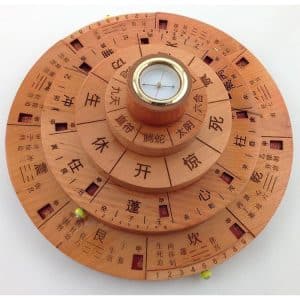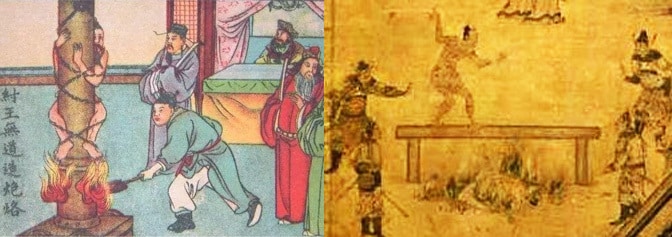Jiang Ziya, also known as Jiang Taigong, is a figure who looms large in the annals of Chinese mythology and history. Renowned for his wisdom, strategic acumen, and deep understanding of the mystical arts, Jiang Ziya was more than just a man; he was a pivotal figure who helped shape the destiny of the Zhou dynasty and, by extension, Chinese culture. His life story is a fascinating blend of historical events, legendary tales, and mystical elements that have inspired countless stories, including the possible upcoming video game “Black Myth: Jiang Ziya.”
Historical Context: The Shang Dynasty and the Rise of the Zhou
To understand Jiang Ziya’s significance, it’s crucial to place him within the historical context of the Shang and Zhou dynasties. The Shang dynasty, which ruled from around the 16th to the 11th century BC, was one of the earliest Chinese dynasties. However, it was also known for its despotic rulers, particularly the infamous King Zhou of Shang, whose cruelty and tyranny became legendary.
As the Shang dynasty descended into chaos and corruption, the Zhou clan, led by King Wen and later his son, King Wu, rose as challengers to Shang’s supremacy. However, the Zhou’s victory was not solely due to military might; it was their ability to blend strategic warfare with moral and mystical wisdom that ultimately led to their success. And this is where Jiang Ziya comes into the picture.
The Humble Beginnings of a Strategic Genius

Jiang Ziya was not born into nobility or power. According to legends, he came from a humble background and spent much of his early life studying ancient texts and practicing the mystical art of Qimen Dunjia, an ancient Chinese system of divination and strategy. His keen intellect and understanding of the forces of nature and the supernatural made him a valuable advisor, but it was his unwavering sense of duty and righteousness that truly set him apart.
As a young man, Jiang Ziya was often dismissed as eccentric or even mad due to his unorthodox methods and deep interest in the arcane. However, his reputation as a master strategist began to grow when his predictions and strategic advice led to a series of unlikely victories for local lords. Eventually, his fame reached the ears of King Wen of Zhou, who recognized Jiang Ziya’s unique talents and invited him to serve as his chief military strategist.
Jiang Ziya and the Rebellion Against the Shang Dynasty
As the Zhou prepared to challenge the Shang, Jiang Ziya played a crucial role in shaping their military strategy. He advised King Wen and later King Wu on how to leverage both traditional warfare tactics and mystical insights to outmaneuver their enemies. One of Jiang Ziya’s most famous contributions was his use of Qien Dunjia to predict the outcomes of battles and identify the most auspicious times to strike.

Jiang Ziya’s strategies were not only about physical combat; they were also deeply rooted in the moral and cosmic order. He believed that the Shang dynasty had lost the “Mandate of Heaven,” a concept in Chinese philosophy that justified the right to rule based on moral righteousness. According to Jiang Ziya, the Zhou were destined to overthrow the Shang because they adhered to the principles of justice and virtue.
The Investiture of the Gods: A Divine Mission
After the Zhou’s victory over the Shang, Jiang Ziya’s role did not end with the establishment of a new dynasty. According to the epic Chinese novel “Fengshen Yanyi” (The Investiture of the Gods), Jiang Ziya was given a divine mission by the Jade Emperor, the ruler of the heavens. His task was to appoint new gods to the celestial hierarchy, selecting beings worthy of divine responsibilities.
This mission was not without its challenges. The gods Jiang Ziya was tasked with appointing were often powerful beings with their own agendas, and convincing them to accept their roles was no easy feat. Moreover, the process of deification came with a heavy price—those who became gods were bound to eternal service, sacrificing their freedom and growth in exchange for power and immortality.
The Dark Side of Deification
While the prospect of becoming a god might seem appealing, “Fengshen Yanyi” presents a more nuanced view. The Canonization List, a mystical roster used by Jiang Ziya to appoint gods, was not just a list of names; it was a binding contract that trapped souls in their divine roles. Those who were deified often lost their autonomy and were forced to adhere to strict celestial laws, serving the Jade Emperor’s will without question.
One of the most powerful tools at Jiang Ziya’s disposal was the God-Beating Whip, a weapon that symbolized the authority of the Jade Emperor. This whip was not just a tool of punishment; it was a reminder of the immense responsibility that came with divine power. The gods who disobeyed or failed in their duties were subject to its wrath, reinforcing the idea that with great power comes great responsibility—and great consequences.
Jiang Ziya’s Legacy: The Gods and Heroes He Appointed
Jiang Ziya’s influence extended far beyond his own lifetime. The gods he appointed during the Investiture of the Gods became key figures in other Chinese myths and legends, most notably in “Journey to the West,” where characters like Erlang Shen and Nezha play significant roles. These gods, with their origins in Jiang Ziya’s divine mission, continue to be revered in Chinese culture to this day.
In many ways, Jiang Ziya’s legacy is a testament to the enduring power of wisdom, strategy, and moral righteousness. His story is not just about a man who helped overthrow a corrupt dynasty; it is about the delicate balance between power and responsibility, the importance of adhering to moral principles, and the dangers of losing sight of one’s duty.
The Modern Relevance of Jiang Ziya: From Myth to Game
Jiang Ziya’s story has captivated audiences for centuries, and it continues to do so today. The upcoming video game “Black Myth: Jiang Ziya” is a testament to his enduring legacy. Following the success of “Black Myth: Wukong,” this new installment promises to explore Jiang Ziya’s life and adventures, blending action, strategy, and mythology in a way that brings his story to life for a new generation.
But beyond the game, Jiang Ziya‘s story raises important questions that are still relevant today. What does it mean to have power? How do we balance our own desires with the responsibilities that come with authority? And perhaps most importantly, what price are we willing to pay for greatness?
Conclusion
As we reflect on the life and legacy of Jiang Ziya, we are reminded of the profound lessons his story offers. His journey from humble beginnings to the heights of celestial power is a powerful example of how wisdom, strategy, and a commitment to righteousness can change the course of history. But it also serves as a cautionary tale about the burdens that come with power and the sacrifices required to uphold moral principles.
So, as you delve into the world of Jiang Ziya—whether through ancient texts, modern retellings, or upcoming games—remember that his story is not just about the past. It is a timeless reminder of the complex interplay between power, responsibility, and the moral choices that define us all.
